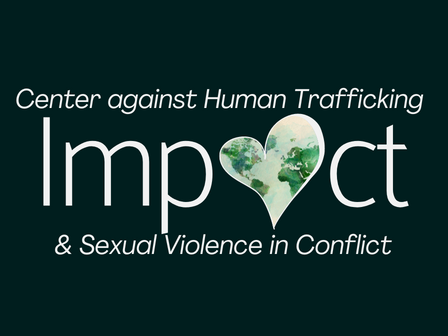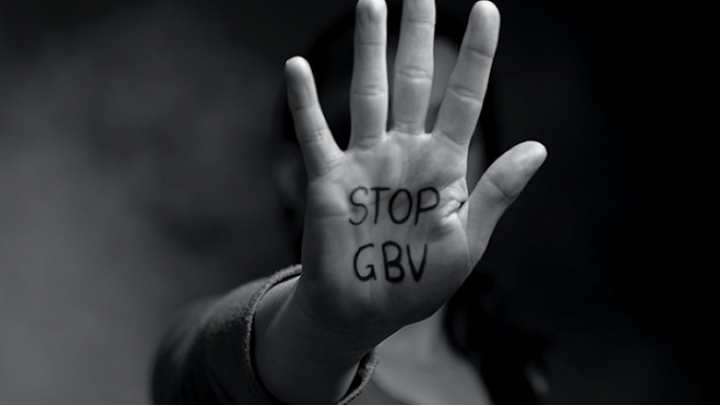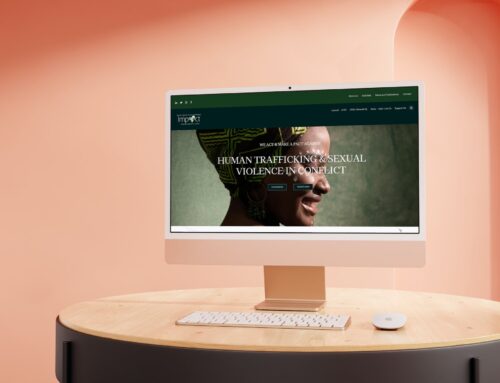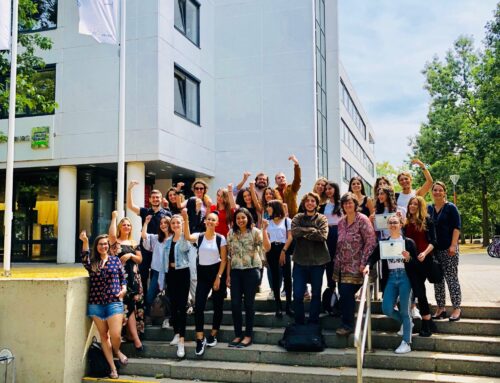Today, November 25th, is International Day for the Elimination of Violence against Women. IMPACT stands together with this cause today by thinking about the role that education can play in the prevention of Gender-based Violence. Through its educational activities, including the Summer and Winter School’s on Justice for Victims and Survivors of Human Trafficking and Conflict-Related Sexual Violence, as well as future projects to come, IMPACT believes that increasing our capacity to approach issues of boundaries and consent is an important part of addressing sexual violence. Among the many topics that can be discussed in relation to the protection against gender-based and sexual violence, the right to sexual autonomy and empowerment is the focus of our message today.
Acts of sexual violence share a loud and abhorrent message: “Neither your sexuality nor your body belongs to yourself.” This is the voice being spoken to women, children, and men whether in peacetime circumstances or in the many conflict situations across the globe, in which sexual violence is being used as a horrific weapon of war. This voice is not only wildly deceitful. It is irreconcilable with our most fundamental human needs, one of which is the right to sexual autonomy, or sexual self-determination. In essence, this is about the feeling of freedom to make sexual choices that are in alignment with a person’s thoughts, beliefs, and values. In the field of education, more steps can be taken to promote this form of empowerment in a strong way, protecting victims and survivors both now and in the future.
Why is learning about empowerment so important?
Without sexual empowerment, there are higher barriers to communicating boundaries and providing consent. An individual can resist inwardly without showing the corresponding physical or verbal dispositions because it might, for example, feel unsafe to express refusal. In some cases, this pattern contributes to what is called secondary victimization and cumulative trauma, which is a significant problem faced by many who have endured sexual trauma. Such risks have implications for long-term health and well-being, as these situations do not serve to change the narrative of empowerment for victims or survivors of sexual violence.
For this reason, updated approaches to sexual education on consent and boundaries are required. Challenging the notions that allow such scenarios to happen can have positive influences on our self-understanding, and can encourage relational experiences that change the course of a person’s sexual experiences for the better. And while there is an already ongoing social effort to accommodate a better understanding of sexual autonomy and consent, such needs are often still viewed as problematic, placing some restriction on the amount of impact available for us to make.
Our society plays an important role
Our common beliefs contribute to the climate of sexual autonomy. Societal inputs can make it feel as if we “should” make certain choices, or that we cannot make others. This can have the effect of undermining sexual autonomy. Have you ever felt any of the following being communicated to you, whether in direct speech or through more subtle communication? What do you think about them? How do you feel about them?
- “Checking for consent stands in the way of a truly enjoyable and emotionally organic sexual experience.”
- “Boundaries against sexual experiences require justification.”
- “If a woman is not open to sex, or if she does not want to discuss sex, she is a “prude”. Women should be open and permissive.”
- “Men should enjoy casual sex, and find it simple and fun.”
- “Communication about sexual acts should be minimal and actions should speak for themselves.”
- “Sex is not a big deal.”
Messages undermining sexual autonomy can even be found in spiritual claims, such as in the belief that “you are not your body”. Society can, in the very same way, become instrumental in putting sexual autonomy in the front seat. We can hang a question mark over these beliefs, foster a climate in which varied approaches to sexual intimacy are accepted and honored, and thereby create more space for ourselves and others to make nuanced choices regarding our sexuality and level of comfort. Different forms of education can play a role in making this possible.
What types of education would help, exactly?
Education, over time, can help in leaving less space for issues of consent to arise or remain vague. Education can help us become more aware of when we are not operating with a feeling of sexual empowerment, or when somebody else is not. It can make us appreciate each other’s individual differences and life experiences in a more informed way, and it can also help us examine and challenge our beliefs, and develop cognitive frameworks that hold more compassion and sensitivity. Due to the prevalence of sexual violence and trauma, this work cannot be time wasted. Here are concrete examples of how this can be achieved on a broader level:
- Creating workshops to challenge misconceptions around consent among adults, for example within universities and workplaces
- Investing in more research to explain the various unique manifestations of sexual trauma, and making this research open and accessible for those who want the information
- Implementing standardized abuse prevention education in schools
- Implementing standardized, inclusive, evidence-based, and consent-focused sex-ed
- Having age-appropriate body safety dialogue and naming body parts accurately, without shame
- Making body safety practices more visible in how we interact with children and offering safe practice, e.g. not punishing children who do not want to hug
We can also do this work on an individual level that is within our influence. We can engage those closest to us in open dialogue, ask honest questions, seek to be met with compassion, and support each other where possible. We can also:
- Further de-stigmatizing conversations around sex and sexual health
- Further de-stigmatize mental healthcare for men, which includes acknowledging GBV and other forms of violence experienced by men
- Practice acceptance of the fact that boundaries can be challenging for ourselves and others
- Practice acceptance of the uncomfortable emotions that can arise around such issues in order to create space to learn and process
Concluding thoughts
Sexual violence poses an immense challenge to well-being in our societies. Learning a better dialogue for sexual autonomy, boundaries, and consent can help us create the non-coercive conditions to care more deeply for ourselves and others. This can help us build feelings of empowerment and make our society more resilient against sexual violenc everybody stands to benefit from our inter-relational standards on consent being raised, these more compassionate conditions are essential for the healing of the many in our society who have had to survive sexual violence.
Kara Liblick, research intern Impact






